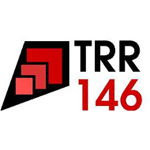
Seminar über Theorie der kondensierten Materie / TRR146 Seminar
Feb. 4, 2021 at
4 p.m.
only via
Zoom
F. Schmid
friederike.schmid@uni-mainz.de
P. Virnau
virnau@uni-mainz.de
L. Stelzl
lstelzl@uni-mainz.de
Inferring and modeling the spread of an infectious disease - lessons learned from COVID-19
Dr. Johannes Zierenberg (Max Planck Institute for Dynamics and Self-Organization, Göttingen, Germany)
Despite decades of research on disease spreading and epidemic outbreaks, the worldwide outbreak of COVID-19 was accompanied by scientific uncertainty resulting in insecure political actions. While scientific knowledge about the disease is initially uncertain until studied in detail, the worldwide
available data on infected cases can be used to assess the current stage of the outbreak and allows for short term forecast of potential scenarios. Using a Bayesian framework even allows to incorporate and estimate parameter insecurity.
I will present such an approach to infer spreading parameters during the initial outbreak of COVID-19 in Germany, show how to use it for short-term
forecasts of potential scenarios, and argue that this approach adds a powerful tool to assist political decision making if the underlying assumptions and limitations are clearly communicated. I will further demonstrate how such models can be used to identify potential weak points in disease control, such as a limited tracing capacity.